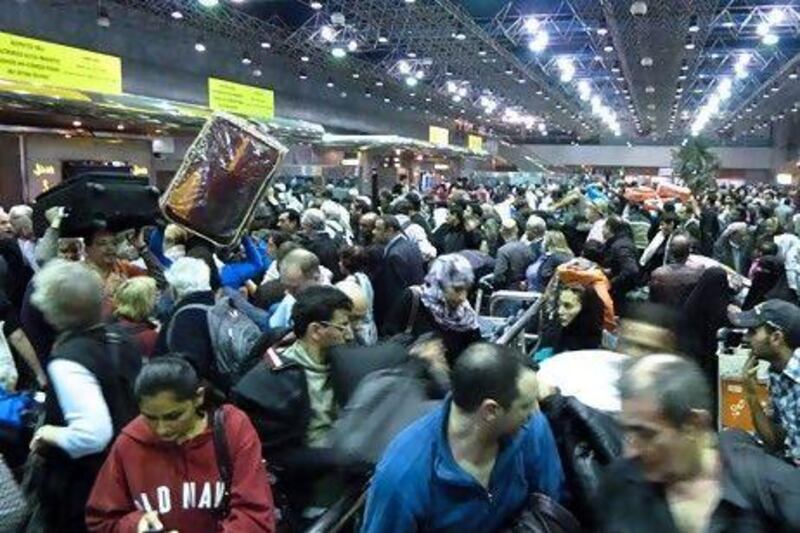Every year, thousands of employees of Qtel Group travel to any number of the 17 countries in which the telecommunications company operates.
Michael Beckwith, the senior manager of safety at Qtel, which is based in Qatar, helps to ensure that everyone remains secure during work trips to countries such as Algeria, Tunisia and Indonesia, as well as to higher-risk locations such as Iraq and the Palestinian Territories.
He uses a tracking system that provides travel advisories, identifies local medical experts and facilities and allows him to share pertinent information with workers via email or text message on their smartphones and tablets.
"Their travel safety is paramount," says Mr Beckwith, who joined Qtel three years ago to help to establish a companywide travel-safety programme.
In recent years, business travellers have faced no shortage of crises, including the unrest that began last year in the Middle East and North Africa (Mena)and natural disasters in countries such as Japan and Thailand. For employers, such situations not only cause liability concerns - an employee might get hurt, or worse, during work-related travel - but they can also represent a challenge to retaining top staff prior to a trip even taking place.
A survey released in February found that 23 per cent of business travellers in the United States would refuse to go to places they considered dangerous, while 21 per cent said they would go but would refuse to go on subsequent trips. Fourteen per cent said they would go but would then seek new employment on their return, according to the Opinion Research Corporation, a market research firm that conducted the survey on behalf of the Chubb Group of Insurance Companies.
Employees are more likely to accept going on business trips if they have access to reliable emergency medical services, pre-travel information about the country and access to legal assistance abroad, research has found.
Some private companies, including International SOS and Control Risks, provide these kinds of services. International SOS and Control Risks have formed a joint venture called Travel Security Services, which provides clients with reports about how tensions in the Mena region might affect activities such as Suez Canal shipping or business operations in Egypt.
The companies, which would not disclose how much they charge clients for their services, also provide information about nearby medical services, as well as evacuation assistance during emergencies. International SOS says that during the political tensions in Mena last yearit carried out more than 300 evacuations.
None of Qtel's employees, who have access to International SOS's services, have yet had to be relocated because of political crises or for medical reasons.
However, "I know that availability is there should I need to draw upon it," Mr Beckwith says.
In one case, a Qtel worker had an eye problem and International SOS recommended that he fly to Britain for proper medical care. "I encourage all our business travellers to ring [our security provider], even if they have colds and sniffles," says Mr Beckwith. "Some of the locations they travel to are dengue or malaria areas, and often they confuse the symptoms."
twitter: Follow our breaking business news and retweet to your followers. Follow us





